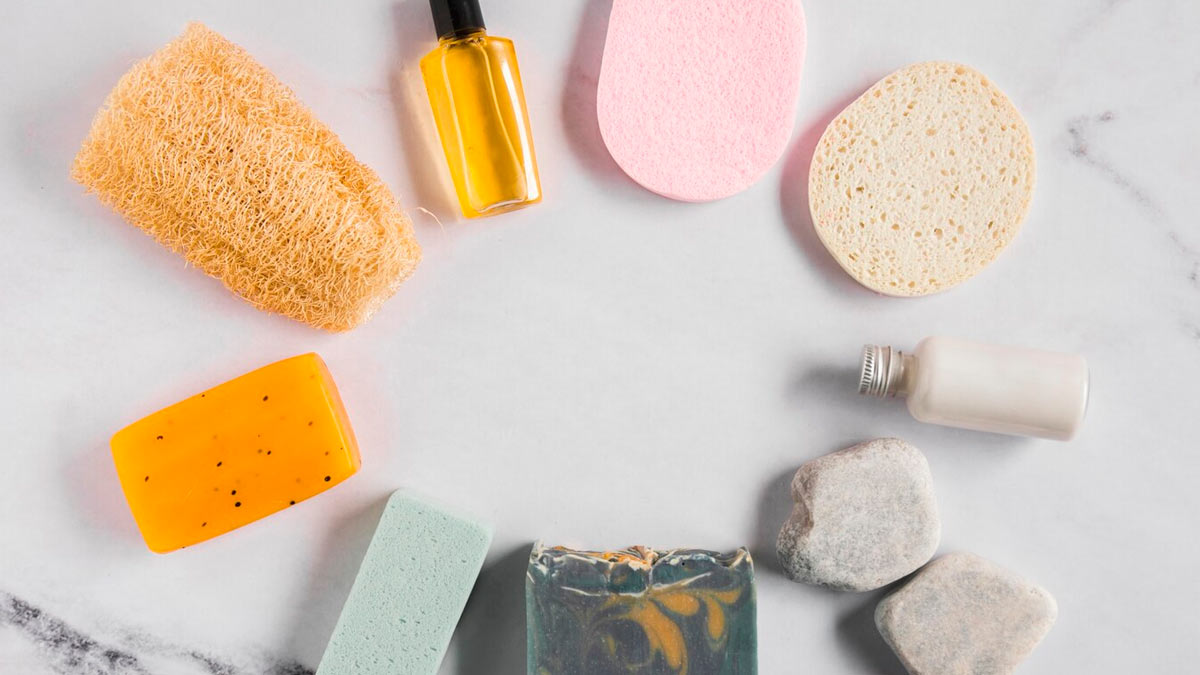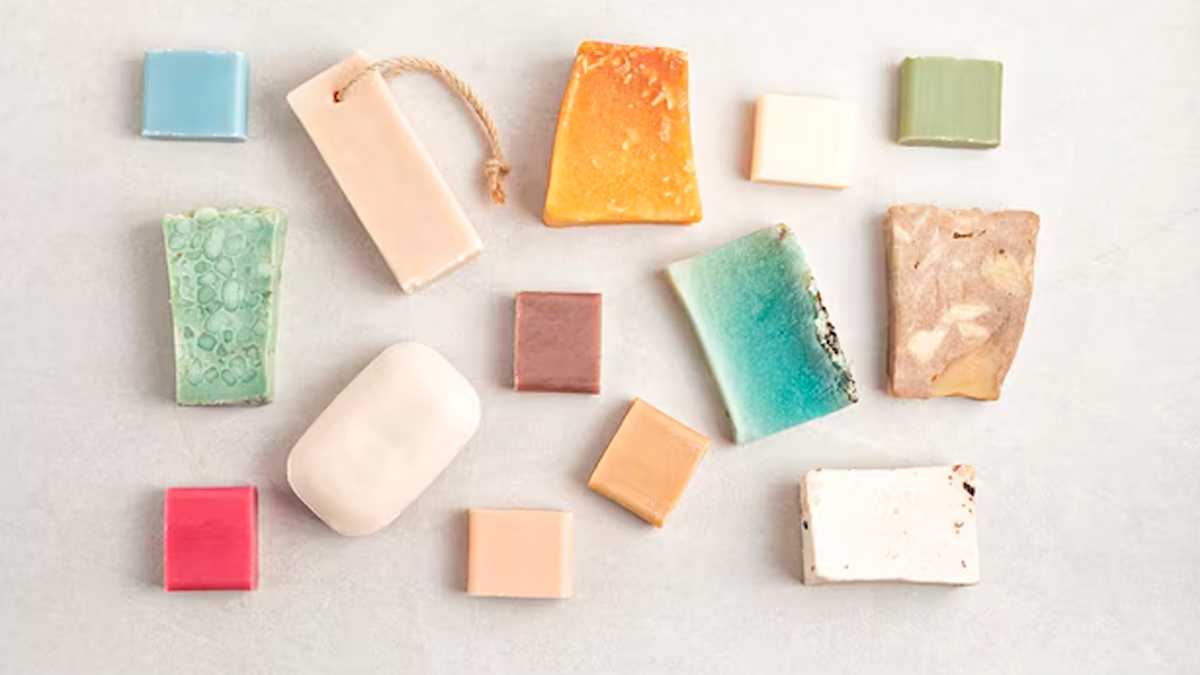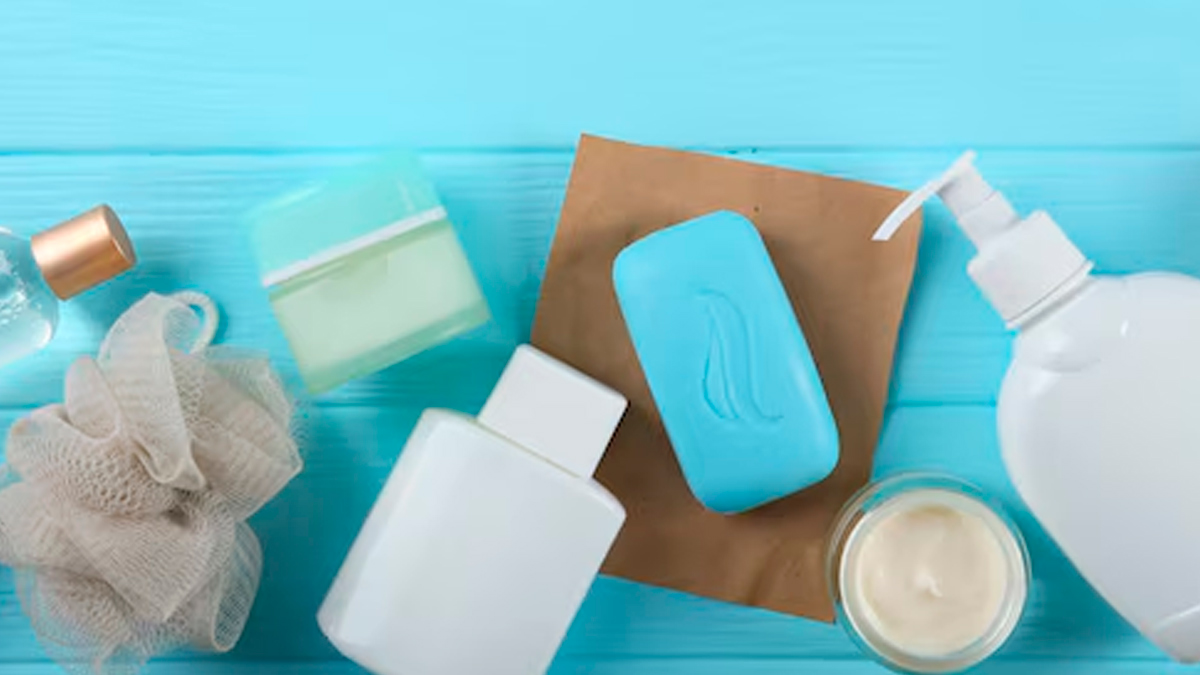
When it comes to choosing the right cleanser for your skin, the options can feel endless. Bar soaps, body washes, and shower gels promise clean, refreshed skin, but how do you know which one is right for you? Every cleansing agent varies in its formulation, drawbacks, and benefits. Soaps, body washes and shower gels are crucial in maintaining personal hygiene as they remove oil, sweat, dust and bacteria from the skin. While all are used for cleaning, they have unique features influencing their suitability for different skin types. We spoke to Dr Atula Gupta, Dermatologist, Dermatosurgeon, Paediatric Dermatologist MBBS, MD-Dermatology, Venerology and Leprosy, who shared insights on how these everyday cleansers differ in their formulation and which one you should choose.
Table of Content:-
Bar Soap Vs Body Washes Vs Shower Gels
Bar Soaps

Bar soaps contain a base of oils or fats combined with potassium or sodium hydroxide. This combination of ingredients forms a solid bar, a process known as saponification. They may also contain fragrances, colourants, exfoliants and natural oils.
“Bar soaps have excellent surfactant properties and effectively remove dirt and oils from the skin. Their ability to maintain moisture in the skin is however variable. Traditional bar soaps are alkaline having a high pH that may lead to irritation and dryness. They are particularly challenging for older individuals and those with sensitive skin conditions like eczema,” said Dr Gupta.
Many bar soaps can strip the skin of their natural moisture. Bar soaps offer unique advantages like better affordability, long-lasting usage and a lower quantity of synthetic preservatives. The key challenge in using bar soaps is their tendency to disrupt the pH balance of the skin leading to dryness and irritation in sensitive skin individuals.
Also Read: Cold Shower Vs Hot Shower: Which Is Better And Why
Body Washes

“Body washes are liquid cleansers made from a water-based formula containing surfactants and conditioners. They are available in forms like foams, creams, and gels. They may contain ingredients like botanical extracts, colourants, antimicrobials, fragrances and moisturisers,” said Dr Gupta.
Body washes are known to provide better hydration than bar soaps. Compared to bar soaps, body washes have a milder pH that helps to maintain the skin's barrier and decrease the risk of dryness. As these contain oils and moisturisers, they are more suitable for dry-skin individuals. Body washes are a better choice with individuals having dry and sensitive skin but they are more expensive than bar soaps and may contain synthetic preservatives.
According to the International Journal For Research in Applied Science and Engineering Technology, some body washes include mild exfoliating ingredients like beads or scrubs to slough off dead skin cells and enhance skin texture. Its easy-to-use formula makes body wash a convenient choice for everyday bathing.
Shower Gel

"Shower gels have a gel-like consistency and are more luxurious formulations of body washes. They contain surfactants and conditioning agents like plant extracts or vitamins. Shower gels provide effective cleansing and are gentle on the skin. Because of their balanced pH, they are more suitable for sensitive skin", added Dr Gupta.
In addition, shower gels have hydrating ingredients that help to moisturise the skin. They are beneficial for individuals with dry and sensitive skin. The added advantage of shower gels includes their luxurious feel. However, shower gels are generally more expensive than bar soaps and body washes. They also have fragrances and preservatives that may irritate an already sensitive skin.
Also Read: Health Benefits Of Bathing With Neem-Infused Water
Key Differences Between Bar Soaps, Body Washes and Shower Gels

- Composition: Bar soaps contain strong detergents and drying agents. Body washes and shower gels have added conditioners and moisturising agents making them a suitable choice for dry and sensitive skin.
- pH: Bar soaps have high pH and alkalinity. Higher pH makes a cleansing agent drier for the skin. On the contrary, body washes and shower gels are less alkaline and closer to the natural pH of the skin. This makes shower gels and body washes a perfect choice for cleaning dry and sensitive skin.
- Foaming: Bar soaps have higher foaming capability than body washes and shower gels. Some body washes especially designed for dry skin may also be foam-free.
- Portability: Bar soaps being solid bars are easily portable as opposed to body washes and shower gels which are packaged in tubes and bottles
Choosing the Right Product
“The most suitable cleansing agent for your skin depends on your skin type. If you have normal to oily skin, you have a wide range of options. However, if you have dermatological conditions or dry or sensitive skin, it's best to opt for body washes as they are more hydrating and gentle. If you are prone to allergic reactions to fragrances, a fragrance-free formulation would be the most suitable choice,” explained Dr Gupta.
- Bar soaps, body washes and shower gels can all be manufactured without additional fragrances. When treating pigmentation or tanning, soaps and body washes with exfoliants are preferred.
- Soaps can contain pumice stones and body washes can contain microbeads. Be careful not to overuse them, as excessive exfoliation can cause skin irritation and inflammation.
- Some people prefer cleansers containing natural vs synthetic ingredients. However, many natural ingredients, even though appealing, may have possible irritants and allergens.
Bottomline
Dr Gupta concluded, “Body washes, bar soaps, and shower gels have unique formulations. Choosing between them should depend on an individual's skin type. By understanding their differences, people can make informed choices to maintain healthier and fresher skin.”
[Disclaimer: This article contains information provided by an expert and is for informational purposes only. Hence, we advise you to consult your own professional if you are dealing with any health issues to avoid complications.]
Also watch this video
How we keep this article up to date:
We work with experts and keep a close eye on the latest in health and wellness. Whenever there is a new research or helpful information, we update our articles with accurate and useful advice.
Current Version